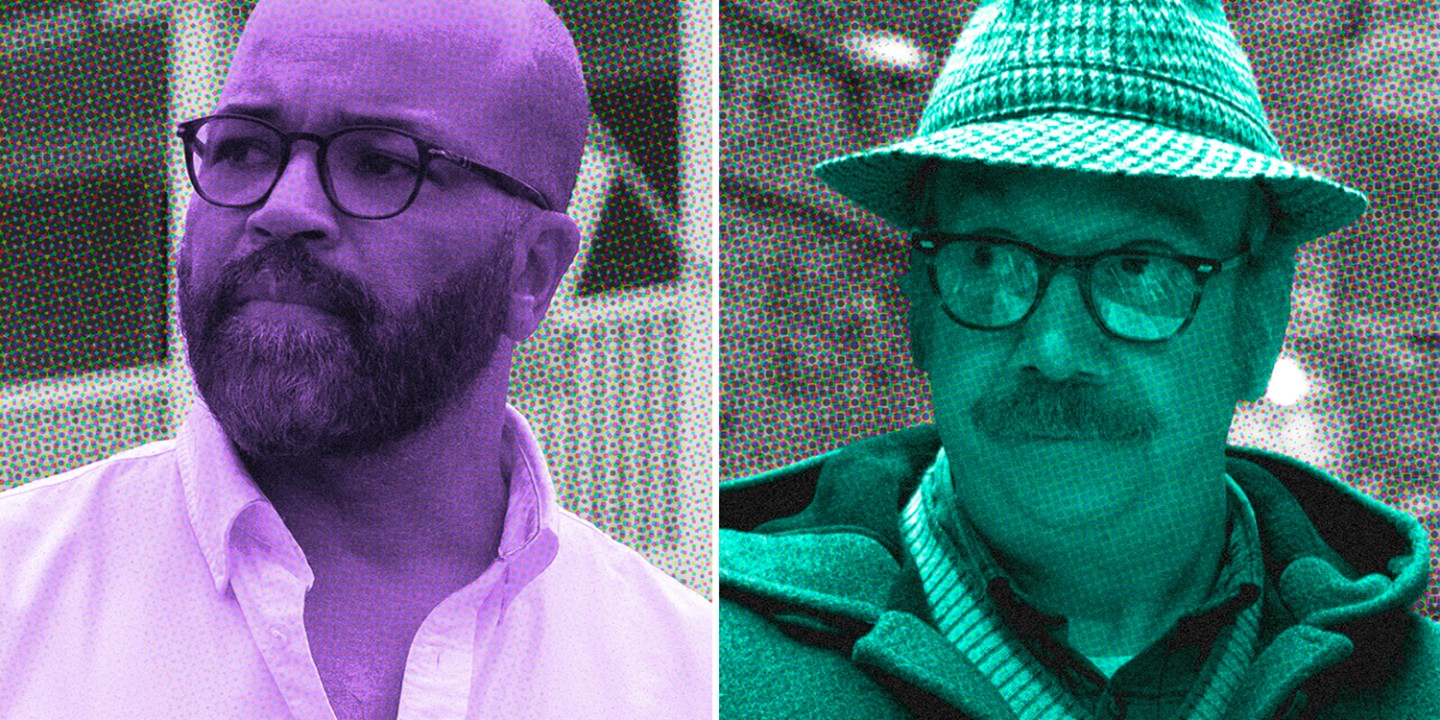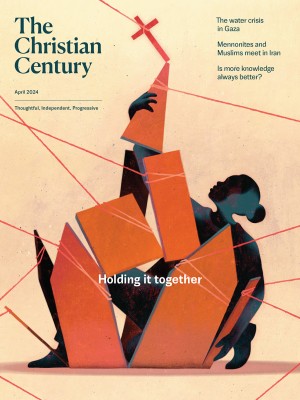American Fiction and The Holdovers find beauty in quiet, personal drama
This used to be the form of most movies, but now it feels rare and precious.

Jeffrey Wright (left) in American Fiction and Paul Giamatti (right) in The Holdovers
“You know that all successful writers are tormented by their families,” Thelonious “Monk” Ellison (Jeffrey Wright) says when his dean encourages him to take a break from teaching and visit his family in an opening scene of American Fiction (directed by Cord Jefferson and adapted from Percival Everett’s novel Erasure). After students complain about Monk’s abrasive teaching style and lack of sensitivity, he has no choice but to take his dean’s suggestion when he is placed on a mandatory leave of absence. Monk is angry at his students, his colleagues, and the entire reading public for their inability to appreciate his brand of esoteric literary art: he reinterprets ancient Greek literature for the modern world, writing densely crafted sentences and carefully observed characters. The only problem? He’s Black.
“What does a reinterpretation of Aeschylus’s The Persians have to do with the African American experience?” a publisher asks in the most recent of a long line of rejection letters. “They want a Black book,” his agent tells him. “They have one. I’m Black and it’s my book,” Monk shoots back. Monk grows increasingly irate at the limited expectations for Black art when “the Black experience” is confined to a spectrum between slavery and poverty, with no room for the nuances of his Black experience: upper-middle class, overly educated, a bit neurotic. In a fit of ire, he bangs out a novel full of cliches (“deadbeat dads, rappers, crack—that’s Black, right?”) under the pseudonym Stagg R. Leigh. He insists his agent shop the book as an act of protest, throwing back in the faces of the White literary establishment what they say they want from Black authors.
Read our latest issue or browse back issues.
The book sells instantly, with a multimillion-dollar movie deal fast behind. Hilarious hijinks ensue, as Monk discovers just how far he can push his new Black prerogative.
As his Stagg R. Leigh persona spirals out of control, the movie retreats to a quieter form of drama in Monk’s family life, which, as he quipped to his dean, he sees as a source of torment. Withdrawn in a sense of bitter self-importance, he has largely abandoned his ailing mother to the care of his sister Lisa (Tracee Ellis Ross) even as she navigates a painful divorce. Their younger brother Cliff (Sterling K. Brown) lives in Arizona. His own marriage imploded when his wife discovered him in bed with another man. When tragedy strikes, the siblings wrestle with years of secrets, lies, and unexamined wounds.
The plot points of a frustrated middle-aged intellectual grappling with family wounds and emotional limitations are rehearsed in many novels and movies, though these protagonists are almost always White. If we’ve come to American Fiction for the raucous social satire of Stagg R. Leigh, we slowly realize we’re watching the story Monk’s agent is convinced no one will buy: a Black family navigating the spiritual and emotional pitfalls particular to materially affluent lives without any expectation to probe or appease the racial wounds of our country.
This doesn’t mean race doesn’t matter in Monk’s story. Jefferson’s satire cuts both ways. “I don’t see race,” Monk says to his agent as he watches a cab pass him by to pick up a White man farther out of the way. His family expresses delight when his newest girlfriend isn’t White, implying that this is a departure for him. And he admits that as much as he recoils from being painted with the broad brush of “Black life,” his wealth and education put him out of touch with many Black lives in America. Race is clearly an important matrix in which his particular life and his family drama has unfolded. The film’s most daring stance isn’t to erase race but to insist that the trials and triumphs of this particular family can speak universally.
Watching this, I kept thinking of another recent film, The Holdovers (directed by Alexander Payne), also about a cranky middle-aged intellectual who feels out of touch with his students, his colleagues, and his entire age. Paul Hunham (Paul Giamatti), a White man teaching classics at a New England prep school in 1970, is unceremoniously drafted into supervising the students who have nowhere else to go for the Christmas holidays. When one of the rich boys orchestrates an exit for most of the holdovers, soon the only ones left at the school are Paul, one recalcitrant student, Angus (Dominic Sessa); and the Black cook, Mary Lamb (Da’Vine Joy Randolph), whose son had been a student at the school and died in Vietnam shortly after his graduation. Less rambunctious hijinks ensue, mostly involving drinking, physical stunts, suburban Christmas parties, and a road trip to Boston.
Paul and Monk have a lot in common. They are both entitled and belittled, embattled and embittered. They both seek solace in the ancient world as a defense against the ills of the modern one. They wield their superior intellects as weapons and shields against everyone who tries to get close to them. If asked, I would not have said the world needed more stories about curmudgeonly middle-aged men wrestling with their emotional wounds. But Jefferson and Payne don’t ask us to believe these stories are world-historically important. There are no great transformations, no cathartic once-and-for-all revelations, no grand arcs that end in redemption and closure. Characters learn from each other, they grow and change—but not completely, and life keeps going. This used to be the basic form of most movies, but now it feels rare and precious.
“I heard that movie bombed at the box office,” my husband said as we rode the escalator past a giant poster for Aquaman and the Lost Kingdom on our way to see American Fiction. “It was in some article titled ‘The reign of the superhero movie is over’ or something like that.” If 2024 might finally break the stranglehold of franchise storytelling, may American Fiction and The Holdovers be the harbinger of what’s to come.







